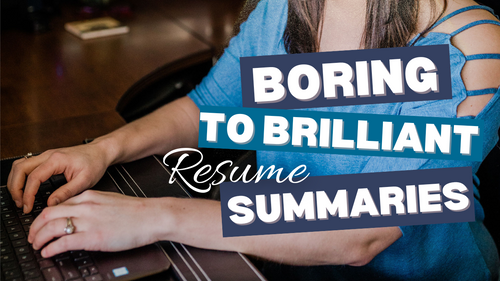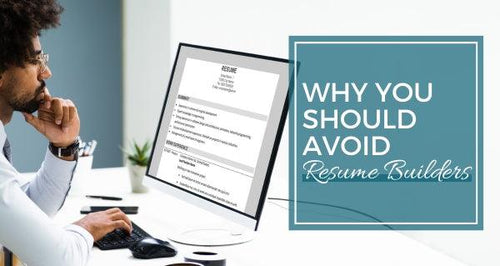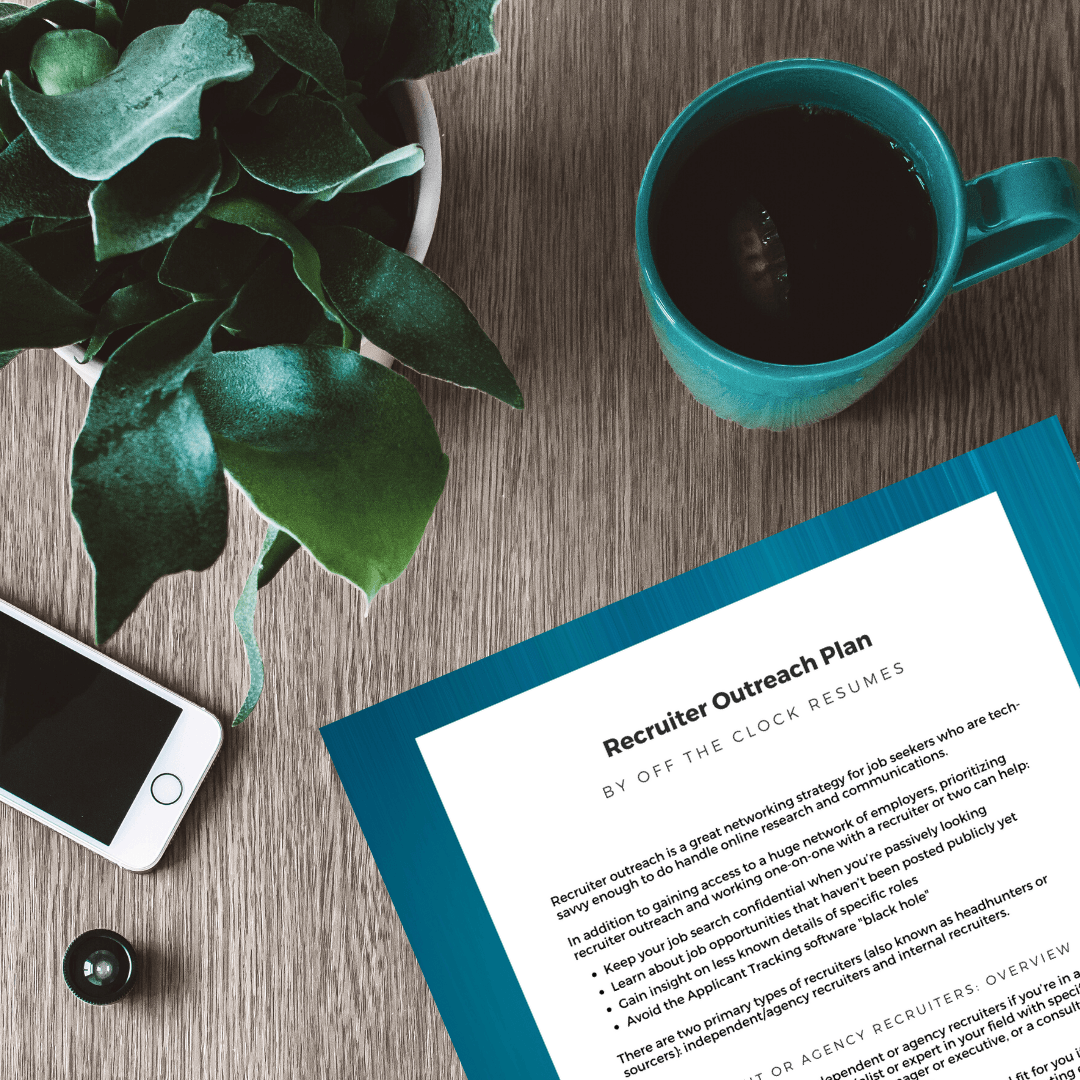
Resume Skills That Get You Hired: What To Include (And What To Skip!)
Ever feel like your resume is getting ghosted despite your experience? You’re not alone. One sneaky little culprit might be hiding in plain sight: your Skills section.
Yep. That tiny little block of text? It can make or break your chances.
When done right, your skills section instantly tells recruiters, “Hey! I’m exactly who you’re looking for.” Done wrong, it’s just resume filler that gets ignored.
Let’s break down what actually works, what to skip, and how to build a Skills section that actually lands interviews.
This blog contains affiliate links, meaning I may receive a small commission (at no cost to you) if you subscribe or buy something through the links I share. I only share links to products or services that I use myself or absolutely love!
Why Your Resume Skills Section Matters More Than You Think
Let’s be real—most job seekers either overload this section or completely miss the mark.
Here’s why it matters:
- ATS software (Applicant Tracking Systems) use keywords to search for, filter, and sort applicants.
- Recruiters spend about 6 seconds skimming your resume.
A clear, well-targeted skills section helps you pass both screenings fast.
But here’s the catch: Quantity doesn’t equal quality.
Think of your skills section like a highlight reel. It’s not a brain dump of everything you’ve ever touched—it’s a carefully curated list that speaks directly to the job you want.
Start With Hard Skills
If your skills section doesn’t lead with hard skills, we’ve got a problem.
Hard skills are teachable, technical, and job-specific. Think tools, systems, and processes that you’ve mastered through training, certifications, or experience.
Some examples by role:
- Software Engineer – Software Development, Automation Scripting
- Project Manager – Sprint Planning, Resource Allocation
- Graphic Designer – Typography, Responsive Web Design
These are the skills recruiters and software tools are actually scanning for, so make them easy to find.
Use Industry-Specific Keywords That Say “I Get This Job”
Want to speak your industry’s language? Use the keywords your future employer uses.
Industry-specific keywords go beyond general skills. They show deep understanding of your field and the terminology that matters.
Here’s what that might look like:
- Instead of saying “Emailing Customers,” use Email Campaign Management
- Rather than “Managing Performance,” go with ROI Tracking
- If you handled company finances, think Budget Reconciliation or Financial Modeling instead of generic administrative terms
Pro tip: Pull these keywords straight from the job posting. If they mention it, mirror it—assuming you’ve got the experience.
Don’t Forget Software & Digital Tools
Yes, the tools you’ve used deserve their moment in the spotlight especially if the job is technical.
This includes:
- Certifications: CompTIA Security+, Google Analytics, HubSpot
- Platforms: Salesforce, QuickBooks, Canva
- Technical Suites: Microsoft Azure, Adobe Creative Cloud
If you're applying for a highly technical role, consider creating a separate "Technical Skills" or "Computer Skills" section near the bottom of your resume. That way, you can list everything without overwhelming your main Skills section.
Soft Skills? Use Strategically—Not Like a Buzzword Parade
Now let’s talk about soft skills: Communication, problem solving, adaptability, and the like.
Soft skills matter but they’re best shown, not told.
Instead of adding “strong communicator” to your skills list, describe this in action in your Experience section:
Presented monthly analytics to executive leadership to influence data-driven decisions.
See the difference?
Here are better ways to show soft skills:
- Problem solver? Describe how you streamlined a process that saved time or money.
- Adaptable? Share how you took on dual roles during a hiring freeze and still hit your goals.
- Team player? Talk about a collaborative project where your input drove results.
Bottom line: Soft skills belong in your Experience section, not as lonely words in a skill list.
Give employers what they want! This Skills Auditor and bonus Work History Examples Guide helps you organize your skills and translate them into action-oriented statements for your Experience section
What to Leave Off Your Resume
Some things are better left unsaid, especially if they make your resume look outdated or irrelevant.
Here’s what to skip:
- Obvious skills – Like Microsoft Word or internet browsing (unless the job posting specifically calls them out).
- Vague buzzwords – “Hardworking,” “motivated self-starter,” “team player”… they don’t mean much without proof.
- Outdated technologies – If it’s not used anymore, leave it in the past.
Remember: If a recruiter wouldn’t search for it in an ATS, it probably doesn’t belong in your Skills section.
Conclusion
Your resume is your first impression, and your skills section is prime real estate. Don’t waste it.
Lead with hard, job-relevant skills. Speak the language of your industry. Name-drop software and tools with confidence. Show, don’t tell, when it comes to soft skills. Skip the fluff and focus on what matters most to the employer.
You’ve got skills. Now let’s make sure they shine.
Related Articles
-

26 Interview and Offer-winning Resume Tips for 2026 and Beyond
Upgrade your resume for 2026 with tips that work from design to keywords and strategies that get interviews. Discover what to fix now and stand out fast!
-

The Perfect Resume Length: One Page, Two Pages, or More?
Confused about the ideal resume length? Discover when to use 1, 2, or even 3+ pages plus get tips to highlight your value and land more interviews.
-

The Harsh Truths About Executive Resumes: What Not to Do
Avoid the most common executive resume mistakes that cost you interviews. Discover actionable resume tips to stand out and land C-level roles.
-

How To Transform Your Resume Summary From Boring To Brilliant
Transform your resume summary from generic to job-winning! Learn how to write a standout branding statement that grabs attention and lands interviews.
-

The Best Resume Tips for Recent Law School Graduates
Guest contributor Luke Bell shares practical resume tips to help recent law school graduates make a lasting impression on potential employers.
-

What Employers Look For In A Resume Skills Section
Learn which key components of an effective Skills section can indicate to resume screening software and the recruiters behind it which skills are your most recent, relevant, functional job-related skills.
-

What Your Resume Should Look Like in 2026
This comprehensive resume guide shares what the most common resume sections are and what your resume should look like in 2026.
-

Is Jobscan Worth It? Jobscan Review (2024 Update)
Have you heard of Jobscan? Learn more about this keyword analysis tool for job seekers, what it costs, and what Certified Resume Writers both love and hate about it in this in-depth product review.
-

How To Showcase Transferable Skills And Your Value For A Career Transition
Recognizing the significance of transferable skills is key to successfully showcasing one's potential in the face of change.
-

How To Showcase Achievements In Your Cover Letter
Learn how to turn your accomplishments into a compelling personal narrative that showcases the results an employer can expect from you.
-

Why You Should Avoid Resume Builders
Online resume builders are an enticing resume resource, but as a Certified Resume Writer who has tried them out, I recommend avoiding them.
-

ChatGPT Review: Resume Writing Edition
How useful is ChatGPT in crafting a resume that lands interviews and job offers? This review by a Certified Resume Writer isn’t what you’d expect.















